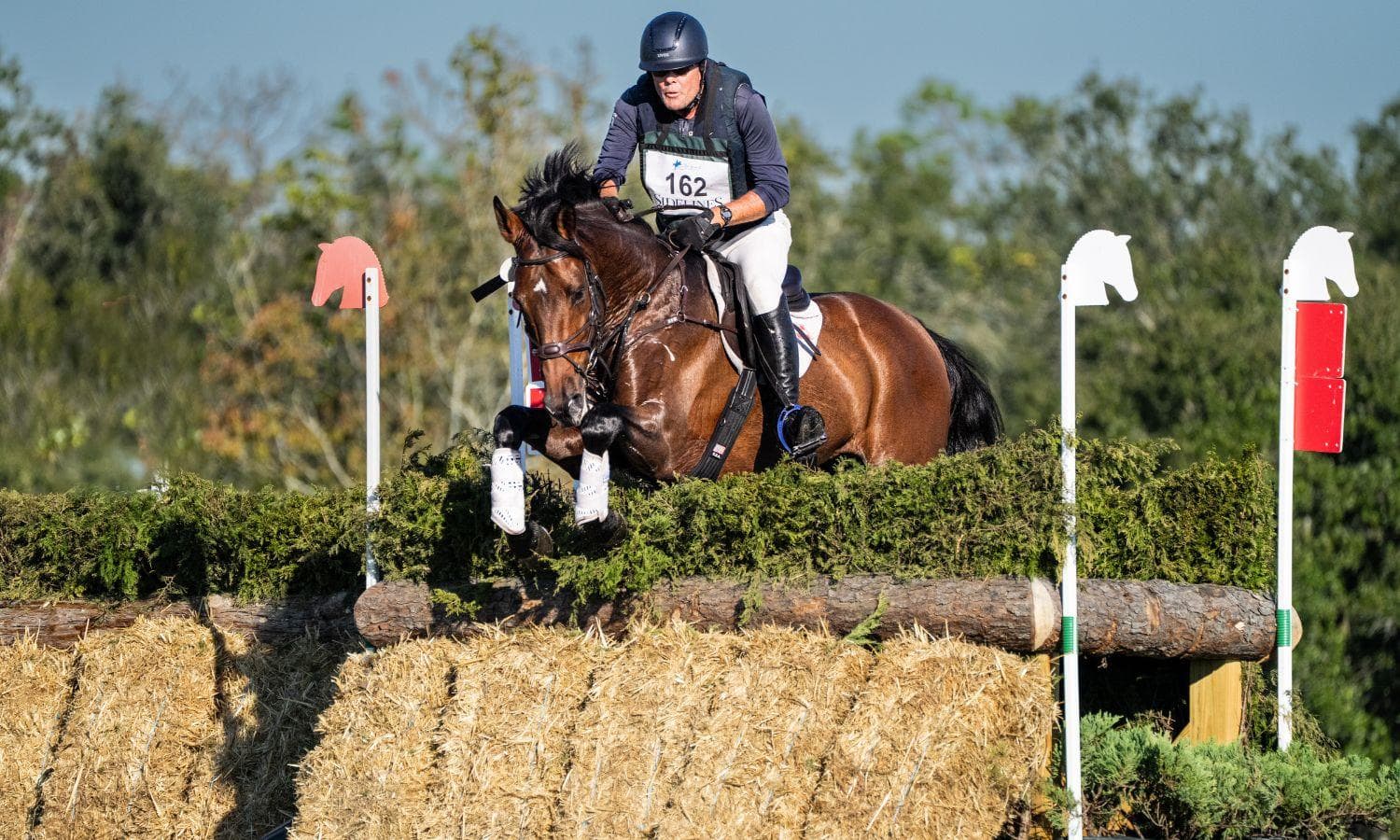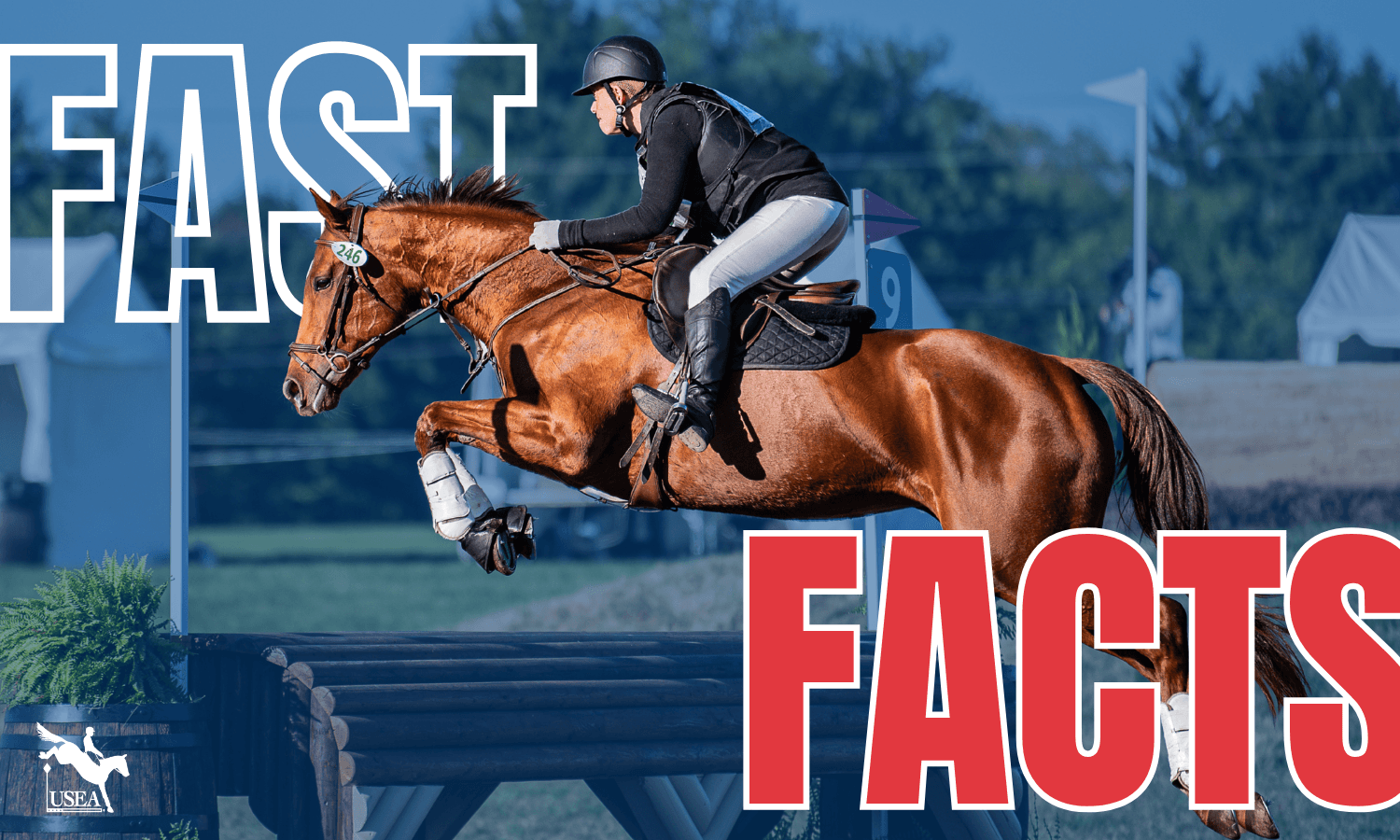From Organizing to Coaching to Competing, Alice Sarno Has Been Growing Eventing in Arizona For Decades
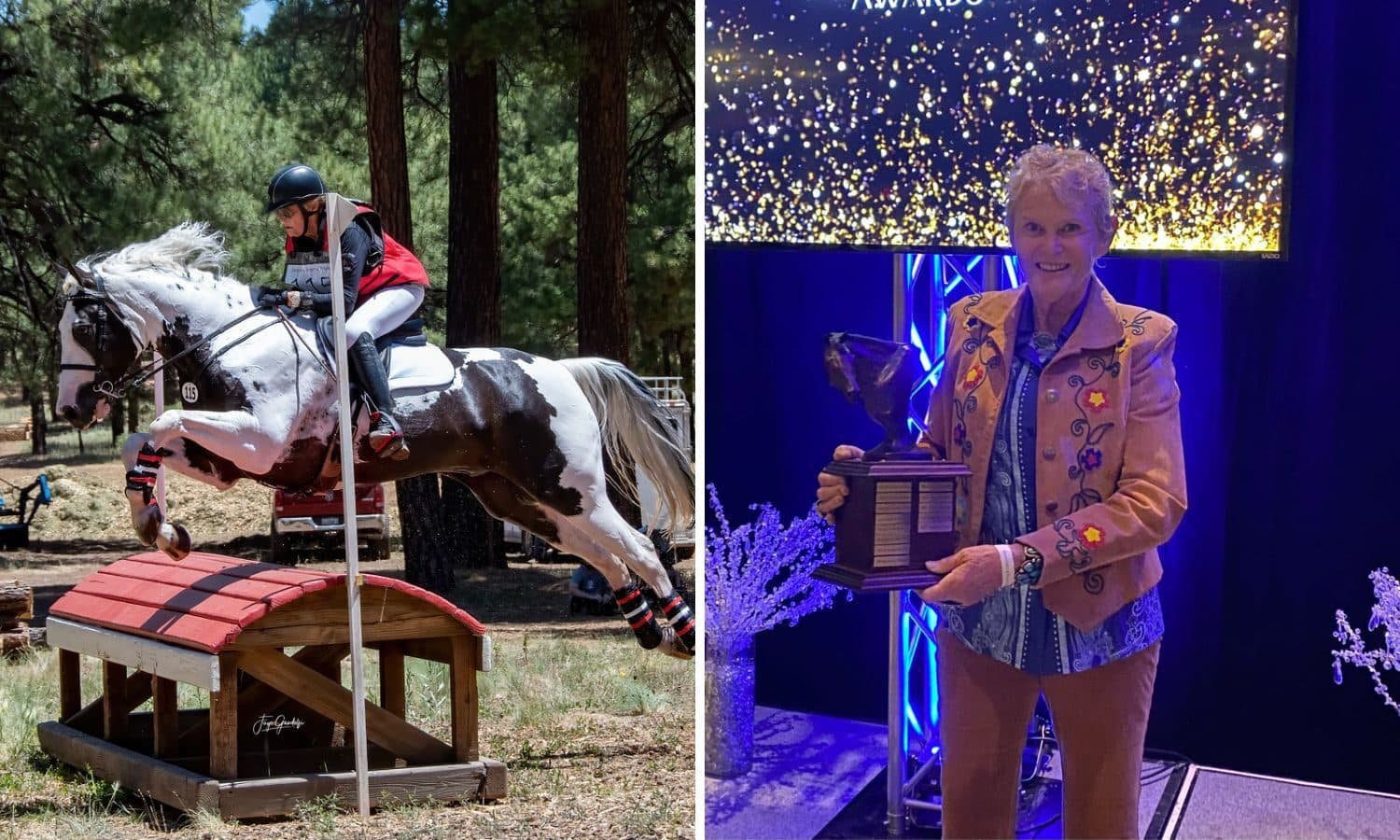
When Alice Sarno was 8 years old, she begged her parents for riding lessons.
“All I could do was think about horses,” said Sarno, 75, recalling that they eventually agreed. “They finally gave up on giving me dance lessons and got me horseback riding lessons instead. My mom and dad made a deal thinking I would phase right out of it. But by the next year, I had two more horses.”
And nearly 70 years later? She’s still riding every day.
Even a traumatic accident just over a year ago, in which she suffered a broken hip and humerus, didn’t slow her down for long. She spent four days in hospital, 10 more days in a rehab facility, and then began the process of working her way through the pain to heal from her injuries and get herself back to the place she loves—the saddle.
Sarno, who runs Desert Sport Horse at Carefree Farms in Phoenix, Arizona, was longing a horse who had a habit of trying to evade the line by jerking her off her feet. For leverage, she put the longe line around behind her.
“He spun me like a top. My whole left side was trashed,” she said, adding that the rehab process is mostly behind her, and she’s back to riding as much as she can. “It took a long time, but I’m feeling really good now. I’m just taking it one step at a time. You have to build your muscles back. They were totally gone. Every day that I ride, I’m stronger, and I love it.”
On April 6, Sarno, the longtime organizer of the Coconino Horse Trials, and TNT M&M Patron, a 26-year-old Morgan, completed their Century Ride. Their combined age of 101 made them eligible for The Dressage Foundation’s honor ride, for which she and Patron performed the United States Equestrian Federation Training Level Test 3.
“It was just a hoot,” Sarno said. “He’s a fabulously good boy. Just great.”
Sarno, who discovered three-day eventing as a youngster, has competed at the highest levels in the sport and trained “generations” of riders in the Phoenix area. And she’s also steadily and passionately built up the sport by supporting those who are competing and new riders who might have an interest in it. She runs Desert Sport Horse, a lesson and training operation at Carefree Farms, alongside Laura Borghesani and Laura Bentley.
For 30 years, she’s been at the helm of the Coconino Horse Trials, held over two weeks at the end of every June and first week of July at Fort Tuthill County Park in Flagstaff, Arizona, and the Spring Coconino Horse Trials, a Coconino cross-country fundraiser event, and several schooling shows at Carefree every spring and fall. The July event is also a USEA Classic Series event with three-day divisions from Beginner Novice through Training level, sponsored by Western Underground.
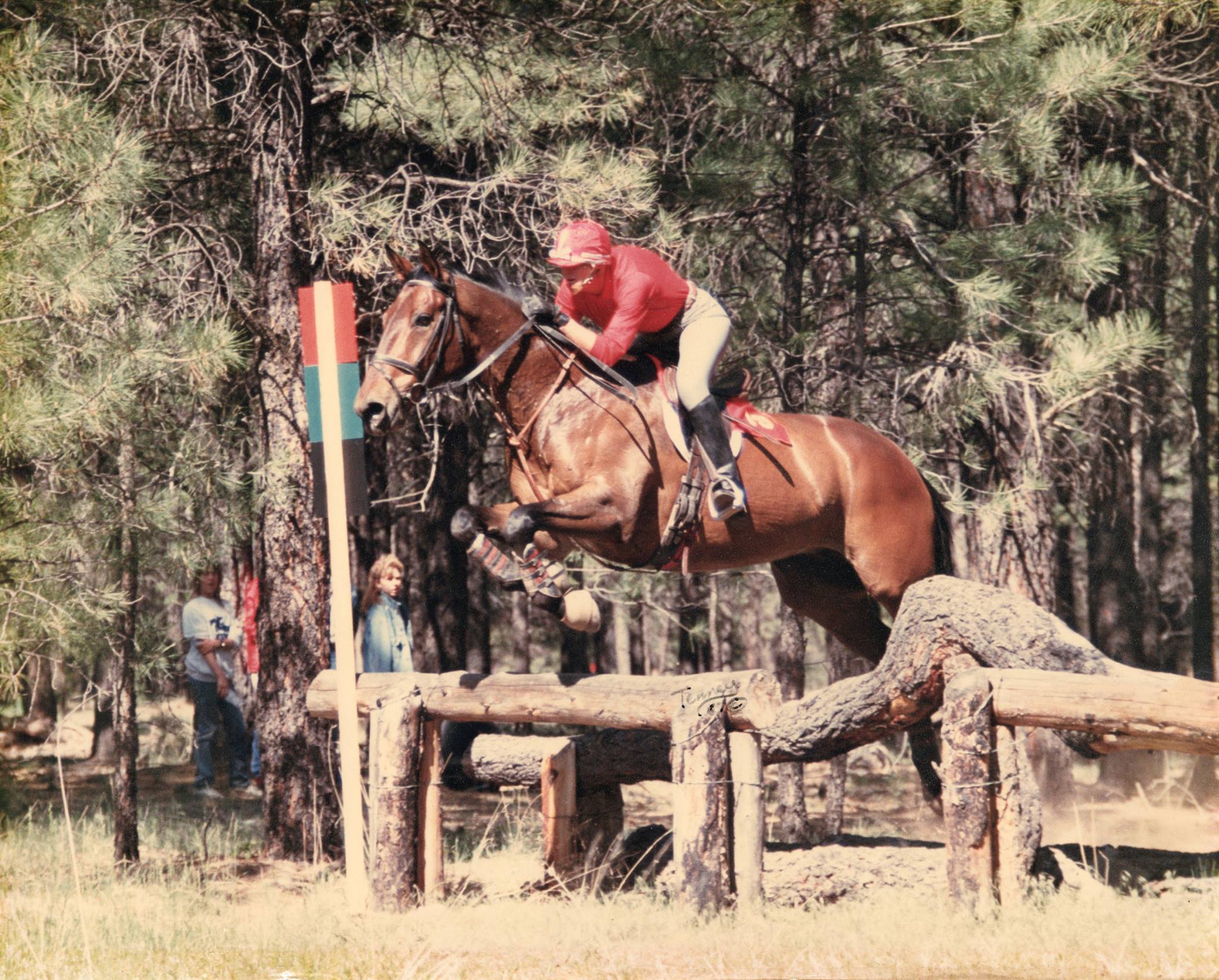
Underscoring her commitment to the sport, she’s been the recipient of numerous awards during her lengthy career, including several from the Unites States Eventing Association, including a Governor’s Cup in 2006, which is presented in recognition of volunteers whose services have contributed significantly to the sport; a Cornerstone Instructors Award in 2014, which honors the lower-level instructors who inspire riders in the sport of eventing with their encouragement and long-term dedication to teaching basic horsemanship skills; and the 2021 Andrew H. Popiel Memorial Trophy, which honors event organizers and their commitment to the sport. She was also a member of the USEA Board of Governors from 2020-22.
“She is as horsey as it gets. She’s just incredible,” said James Atkinson, a former international rider for Canada, trainer and coach, and in-demand USEF and Fédération Équestre Internationale course designer who’s worked with Sarno for almost 20 years at the Coconino Horse Trials.
“She really has a strong history, steeped in the sport, here in the southwest. She had her own place for a long time where she ran recognized and unrecognized events, and that’s what gets people involved in the sport, and she’s brought so many people up through the levels through the years,” he added. “There are really three trainers in the Phoenix metro area, and she’s certainly the longest-standing and is really the most consistent with how she’s helped people develop. She’s brought so many people into the sport in this region, and she’s always trying to come up with new ideas of how to do that.”
Atkinson said just one example is how Sarno offered the Starter level at Coconino before it became common at horse trials and a USEA-recognized division. Sarno thought it was a beneficial way to offer beginners an entré into the sport.
“She recognized the value of that, and she’s passionate about it,” Atkinson said, adding that in their nearly 20 years of working together, she’s also understood the importance of teamwork.
“One of the things I love about her is she’s not afraid of change or doing things a different way. She really listens when I have an idea not just about cross-country but about the whole event,” he said. “She’s very progressive. She’s always open to doing things differently that might be best for the sport.”
The Coconino Horse Trials take place at the Fort Tuthill County Park fairgrounds, nestled in Ponderosa pines, at nearly 7,000 feet above sea level. The setting is picturesque and attracts about 200 riders annually. Although the upper divisions don’t feature as many entries as other horse trials elsewhere in the west, Sarno believes strongly in offering Starter through Intermediate levels.
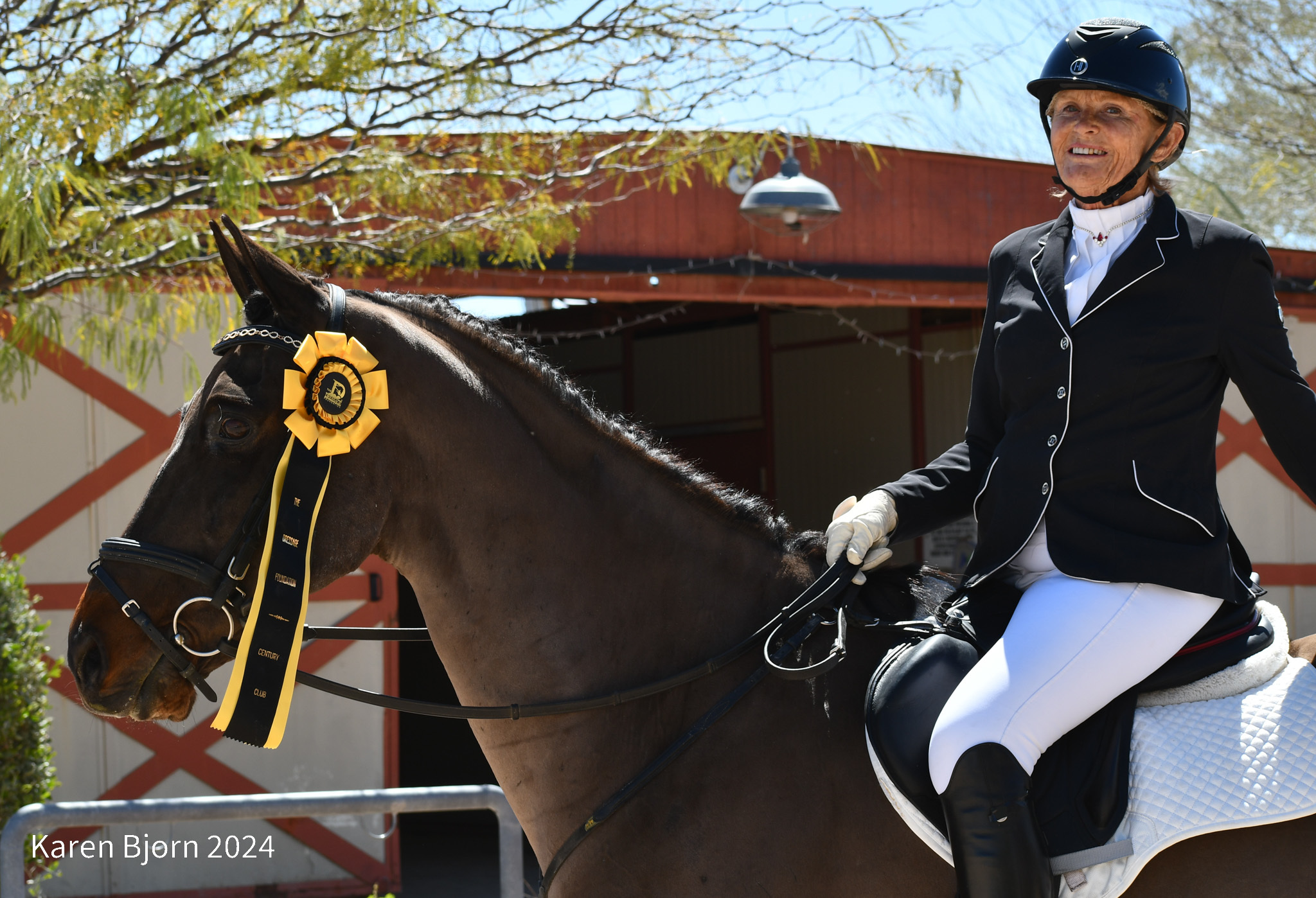
“Consistently, year after year, we run Intermediate for one horse,” Atkinson said. “She believes that it’s important to have that, not even so much for the people looking to compete at that level but for the people who are aspiring to.”
When you talk to Sarno, she’s humble and not one for self-promotion. But what comes across is that she’s a proponent of encouraging riders in any way she can, particularly by offering them a look at the upper levels of competition.
“They need to see horses jumping bigger and see ‘Hey, maybe I want to do that’, ” Sarno said of offering higher divisions, even if they don’t attract huge numbers of riders. “I want people to get a taste of it because so many people are just getting into the sport.”
Sarno got her start in the sport by chance. Growing up in Las Vegas, when the casino hotels were being built and there was still “dirt roads,” Sarno was out riding in the desert and came upon Rod Johnson’s ranch, where he and his family were building cross-country jumps. She was intrigued by the obstacles, and when they invited her to attend an upcoming clinic, she did.
“I was totally hooked,” she said. By this point, she’d been riding and showing Appaloosas and even put on Appaloosa horse shows. She remembers attending horse shows at Fort Tuthill, among other places, and when she began working with the Johnsons and learning the art of training horses and jumping, she started eventing with the first of what would be a string of horses. She competed at the twice-annual Ram Tap Three-Day Event in California.
She initially competed with Thunder’s Red Bull, an Appaloosa who “kept jumping out of his stall and running off. He jumped everything in sight. He was very good, very bold. He was really a good, solid horse. He taught me a lot, and I really learned to ride and jump on him. He just liked to jump, and then I lucked out and had good people around me.”
Through her competitive career, she’s produced several horses into the upper levels, including The Intrepid Kid, who was out of a Thoroughbred mare she owned and bred. He was born on the Oregon farm that she and her husband, Frank, lived on for several years after moving from Las Vegas. Sarno worked with miniature mules and Shetland ponies on the couple’s farm to train them under harness to haul firewood and perform other chores on the farm. She missed jumping, though.
“I was always breaking and training horses. That was a dream of mine,” she said. “I wasn’t doing much jumping. Slowly but surely, I decided I needed to be jumping.”
When she and Frank moved to Phoenix in 1983, she began eventing Intrepid. During her career, she’s piloted a lot of horses, including “Homer” and “Cappy” who she competed through the Intermediate level, and Jethro Bodean and Call Me Lucky T. Along the way, after soul searching, she realized that she loved producing them but then once they were capable of competing at the upper levels, it was time to move on.
“I made it a rule in my mind that once I got to the Preliminary level, I would sell them,” she said. “I just got my heart broken too many times with bowed tendons and the like.”
She took a break from competing after her accident, but today continues to ride, often hopping on one of the numerous horses in the lesson string at Carefree, such as Patron, her partner for the Century Ride in April. A month ago, she purchased Atreides, a flashy, bay Friesian-Paint cross, 6. She thinks he’ll be her partner as she delves back into the competitive world.
“I think he could do anything I want,” she said. “I know he can do dressage, and I know he can jump. I’ll leave it until the time comes. I just want to ride right now.”
And she also plans to continue giving back to the sport, teaching lessons, putting on monthly spring and fall schooling shows at Carefree, and running the various Coconino competitions. She’s been managing horse shows for a long time, having put on her first show at the age of 16 for the Appaloosa Club in Las Vegas. She began working at the Coconino shows after she and Frank moved to Phoenix and then eventually took it over.
“I’ve always loved doing horse shows,” she said. “People need a place to go to show, and it’s really fun to see people say, ‘This was really fun.’ This, to me, is a great opportunity to be able to teach and show and put on shows. I grew into it and never looked back. It’s been fun.”
The show draws competitors come from all over, Sarno said, including Texas, Utah, and New Mexico. She said many turn it into a vacation of sorts, taking time on the Monday between competitions to visit the Grand Canyon and take in other sites.
“We have a good population of people coming from the east to us. It’s really a destination venue for people,” she said. “It’s really difficult on the West Coast. People have to drive, and they have to drive so far that they have to pick and choose what they’re going to go to. It’s different on the East Coast. It’s overflowing.”
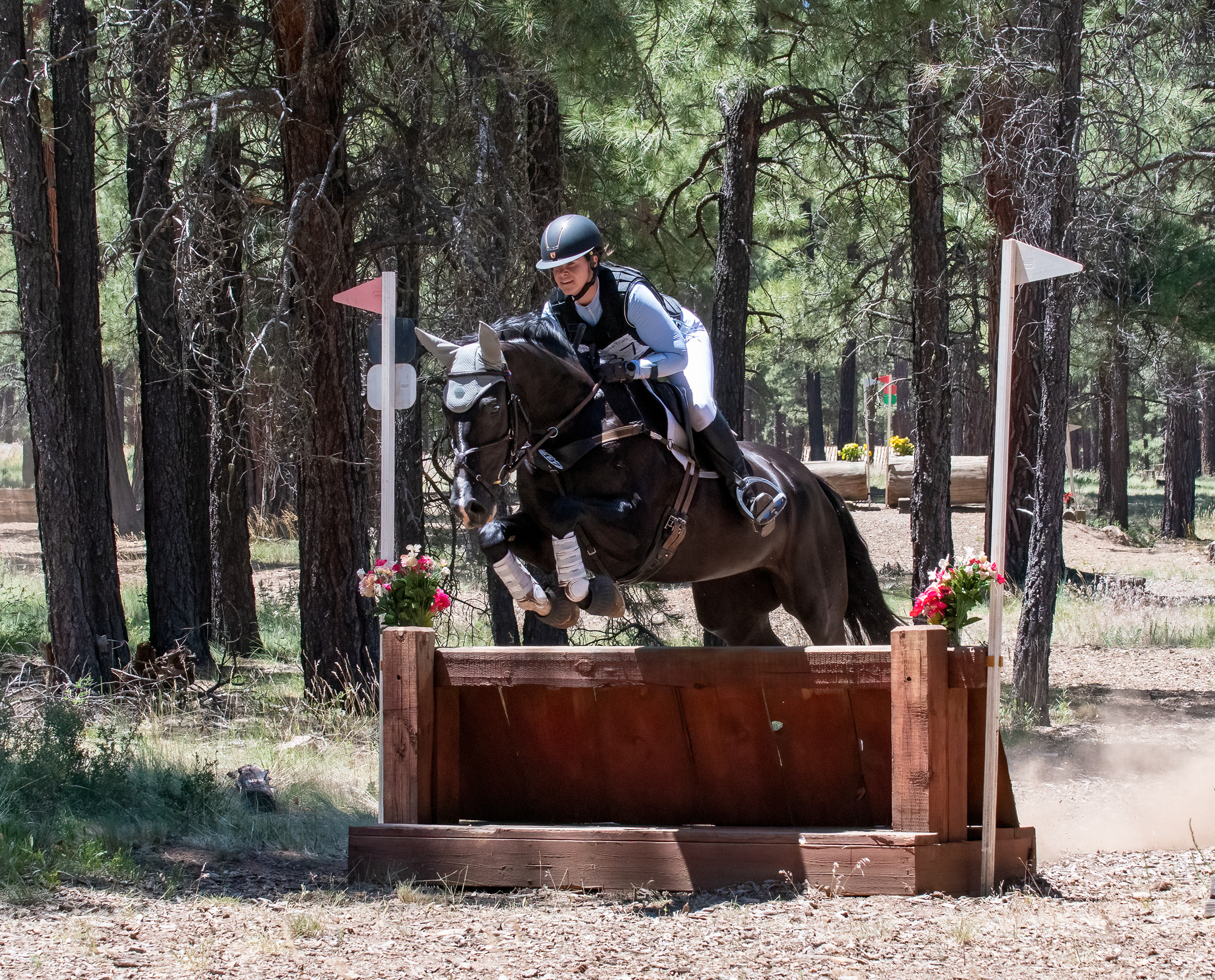
She says the evolution of the sport in the decades she’s been involved, including safer cross-country jumps, more technical questions that require riders to be more skilled, and shorter distances make it better for riders and spectators. The latter is important, she said.
“You have to attract people to watch, which makes them then want to do it,” she said. “People need to be able to see what’s going on.”
Not in her plans? Retiring. She loves teaching, riding, and offering competitive opportunities to riders.
“I’d be bored out of my brain,” she said. “Besides, people have to have places to go. I always tell people [shows] are your report card. You’re not going to shows to win lots of prizes. You’re going there to test your training.”
Borghesani, 58, has known Sarno since the late 1990s. She’d ridden as a youngster, and then took a break. While working with a patient (she was an exercise physiologist and physical therapist), she mentioned wanting to ride again, and the patient recommended she take lessons with Sarno. Taking lessons eventually lead to working around the barn and, today, managing Carefree and bonding with Sarno over their love of horses.
“We’re like sisters now,” she said, recalling how Sarno had a sign saying “No sniveling” in the barn. “That’s her motto. She’s just been that way forever. She’s so driven…to keep the sport alive, really. She’s brought along generations of kids. She’s amazing with kids, and she’s good with adults, too. She’s had a super strong business for over 50 years. She’ll never stop. She’ll be 80 or 85 and still giving lessons.
“I ask her when she’s going to retire and she’s, like, ‘Why?’ ” Borghesani adds. “She can still run circles around me. She’s really impressive, and that’s an understatement.”

